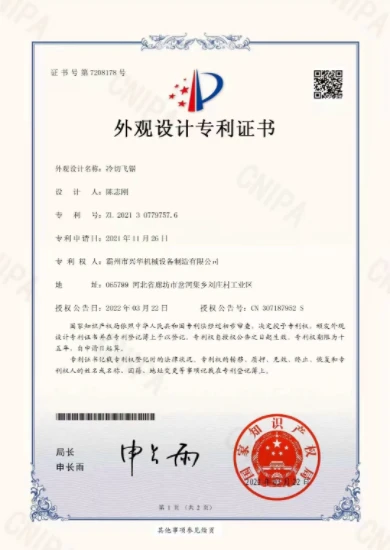Affordable Decoiler Machine Pricing for Your Manufacturing Needs
The Price of Decoiler Machines An In-Depth Analysis
In the modern manufacturing and metalworking industries, the decoiler machine plays a critical role in the production process. These machines are essential for unrolling coils of metal or other materials before they are processed, ensuring smooth operations in areas such as stamping, laser cutting, and forming. As businesses look to invest in decoiler machines, understanding their price range, factors affecting costs, and benefits is crucial for making informed purchasing decisions.
Understanding Decoiler Machines
A decoiler machine, also known as a coil unwinder, is primarily used to facilitate the feeding of coils into production lines. It unwinds the coil and provides a steady feed of material to subsequent machinery. Decoilers come in various designs and capacities, tailored for different materials, such as steel, aluminum, or plastic. Some machines are designed for heavy-duty applications, while others cater to lighter tasks. The intricacies of the machine's design can significantly affect its price.
Price Range for Decoiler Machines
The cost of decoiler machines can vary widely, typically ranging from a few thousand to tens of thousands of dollars. Basic models designed for lighter tasks may start at around $3,000 to $7,000. These machines provide the fundamental functionality necessary for small-scale operations. Mid-range machines, which offer better features, higher load capacities, and increased automation, can range from $10,000 to $20,000.
High-end decoiler machines, often characterized by advanced technology, increased efficiency, and enhanced durability, can cost anywhere from $25,000 to over $50,000. These machines are often suited for larger manufacturing environments where precision and speed are critical. Customized machines designed to meet specific customer requirements can push the price even higher.
Factors Influencing the Price
Several factors influence the price of decoiler machines, and understanding these can help businesses make more strategic purchasing decisions
1. Capacity and Size Machines with larger coil capacities and wider feeding widths generally come at a higher price. The ability to handle heavier loads and larger diameters makes these machines more expensive due to their robust construction and advanced engineering.
decoiler machine price

2. Automation Level Semi-automatic and fully automatic decoiler machines are more expensive than manual models. Automation can significantly increase productivity and reduce labor costs, making these machines more appealing despite higher upfront costs.
3. Material Construction The materials used in manufacturing the decoiler can also influence costs. Machines made from high-quality steel or featuring corrosion-resistant coatings tend to be priced higher, reflecting their durability and longevity.
4. Brand Reputation and Warranty Established brands with a good reputation in the industry often charge more for their machines due to their proven track record and reliability.
5. Additional Features Features such as multi-axis capabilities, integrated safety systems, and ease of maintenance can also add to the cost. Machines equipped with advanced digital controls for precise operation may command a higher price.
Benefits of Investing in a Quality Decoiler Machine
While the initial investment in a decoiler machine can be significant, the return on investment (ROI) often justifies the expense. A reliable decoiler can enhance productivity by ensuring a smooth and consistent flow of material into the production line, reducing downtime and material waste. Furthermore, advanced models can improve precision and accuracy in the unwinding process, leading to better product quality.
Additionally, investing in a high-quality decoiler machine can lead to long-term savings. Durable machines require less frequent maintenance and repairs, and efficient operation can reduce energy consumption, contributing to lower overall operational costs.
Conclusion
In summary, the price of decoiler machines is influenced by various factors, including capacity, automation, material construction, brand reputation, and additional features. Businesses must assess their specific needs and budget to find the right machine for their operations. While the initial cost may seem daunting, the long-term benefits in productivity, efficiency, and quality often make investing in a decoiler machine a wise decision in the competitive landscape of manufacturing and metalworking. As industries continue to evolve, the role of decoiler machines remains pivotal, making understanding their pricing an important consideration for manufacturers.
-
High Frequency Straight Seam Welded Pipe Production Line-BzZhou Xinghua Machinery Equipment Manufacturing Co., LTD.|line pipe steel&welded gas pipeNewsJul.30,2025
-
High Frequency Straight Seam Welded Pipe Production Line-BzZhou Xinghua Machinery Equipment Manufacturing Co., LTD.|High Precision&Automated SolutionsNewsJul.30,2025
-
High Frequency Straight Seam Welded Pipe Production Line - BzZhou Xinghua Machinery Equipment Manufacturing Co., Ltd.NewsJul.30,2025
-
High Frequency Straight Seam Welded Pipe Production Line-BzZhou Xinghua Machinery Equipment Manufacturing Co., LTD.|Precision Welding, High EfficiencyNewsJul.30,2025
-
High Frequency Straight Seam Welded Pipe Production Line|BzZhou Xinghua|Precision Welding&EfficiencyNewsJul.30,2025
-
High Frequency Straight Seam Welded Pipe Production Line - BzZhou Xinghua|Precision Engineering&EfficiencyNewsJul.30,2025


